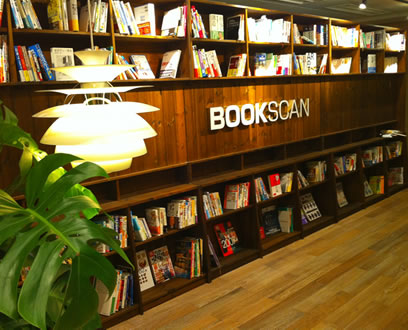With Japan’s cramped living quarters, arrival of the iPad and other tablets and it’s non-existent e-book market, there has been an explosion of start-ups offering consumers to turn their paper books into e-books that can be used on such tablets as the iPad. Japan currently has the largest market for paper books and magazines, worth over $24 billion a year, yet the e-book market is currently earning less than $1 billion per year, driving customers to alternatives such as scanning books into PDF’s for use on tablets and e-readers.
One such start-up, Bookscan was founded by Yusuke Ohki and childhood friend, Shinya Iwamatsu last April and has done gangbusters, expanding its workforce to 120 people in less than 12 months. Ohki said to Bloomberg “the iPad’s release is the biggest factor in making this business possible” and said his inspiration for starting the business was the 2000 physical books that were crowding out his small Tokyo apartment.
A key factor in this booming scanning industry is the living space that Japanese have to live in. With the average living space per person being a minimal 37 square meters, half that of the US, Japanese consumers are turning to devices like the iPad which enable them to have thousands of books in such a small device.
Japan’s laws allow digitsed copies for personal and family use, but reproduction of a purchased work by a third party such as Bookscan require the publishers permission and Bookscan requires customers tick a box to confirm this. However Seichi Higuchi, secretary general of Japan Book Publishers Association says “There are more than 30 or 40 scanning companies and huge amount of books are scanned every day, so I can hardly believe all the scanning is legal.”
[Via Bloomberg]


